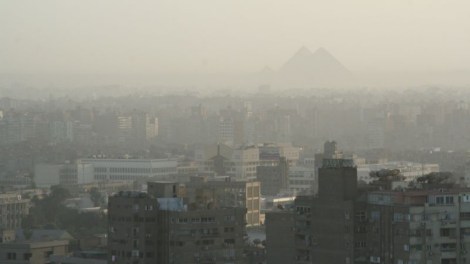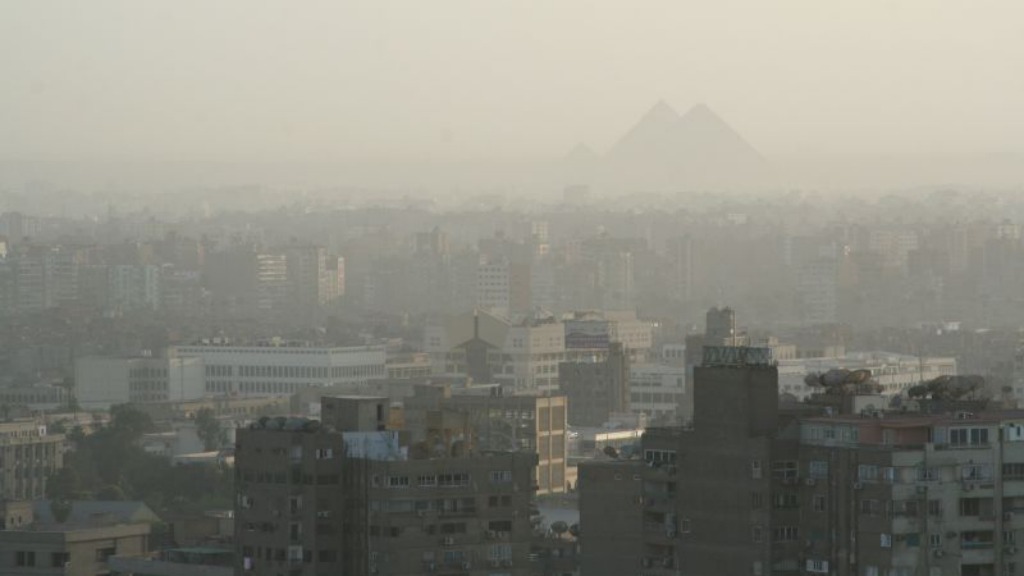
Nina HaleCairo air pollution.
The World Health Organization’s latest advice could be reinterpreted as a cruel oxymoron: Stop breathing, or you’ll stop breathing. A tall order, but one in eight deaths in 2012 was caused by air pollution. And more likely than not, that one air-pollution-wrecked body lived its shortened life in a poor or developing country — probably in Asia.
WHO’s latest air-pollution-linked mortality estimates double previous annual figures, due largely to medical discoveries about pollution’s poisonous effects. Scientists have been discovering that a shockingly long list of afflictions can be exacerbated or triggered by air pollution — everything from heart attacks and lung cancer to diabetes and viral infections. The inhalation of tiny particles is now regarded as the world’s largest single environmental health risk — responsible for an estimated 7 million deaths in 2012.
According to the WHO, indoor air pollution killed 4.3 million people in 2012. It’s produced by stoves and heaters that are fueled with coal, wood, dung, and crop residue. Some 3 billion people rely on cooking and heating facilities like these. Women and young children were more heavily affected than men by indoor air pollution. Half of the kids who died in 2012 before reaching their 5th birthday were thought to have been killed by pneumonia linked to indoor air pollution.
The WHO also attributed 3.7 million premature deaths in 2012 to outdoor air pollution, which is largely caused by power plants, trucks, cars, and crop-burning — with 88 percent of those deaths in low- and middle-income countries, mostly in Asia.
“The risks from air pollution are now far greater than previously thought or understood, particularly for heart disease and strokes,” WHO official Maria Neira said. “Few risks have a greater impact on global health today than air pollution; the evidence signals the need for concerted action to clean up the air we all breathe.”
If there’s a silver lining to this cloud of soot, it’s that the world’s homicidal air pollution problem is starting to capture the global attention it deserves. Globetrotting journalists have been filing breathless dispatches about China’s famously soupy smog. This report is sure to raise the profile of the issue as well. Slowly, it seems, the message is getting through: The clean air we take for granted in much of the West would be a luxury for the world’s poor.


